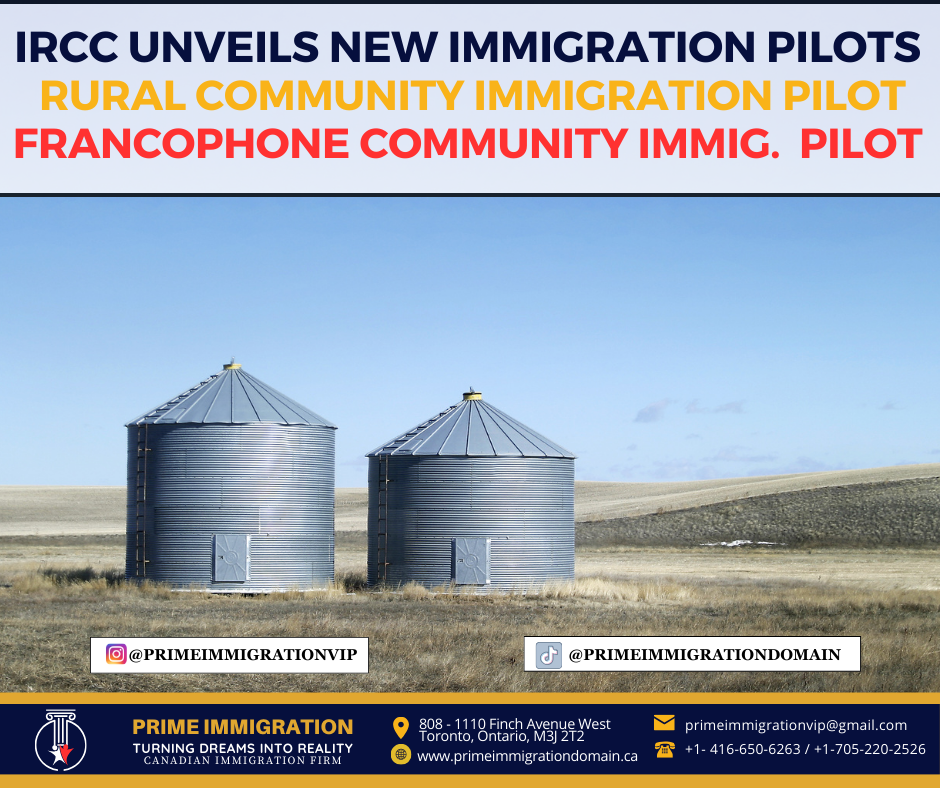
In a recent press conference, Immigration, Refugees, and Citizenship Canada (IRCC) unveiled two new immigration pilots tailored for rural and francophone minority communities across Canada. Additionally, IRCC announced the transition of the existing Rural and Northern Immigration Pilot (RNIP) into a permanent program, underlining the government's commitment to fostering economic and linguistic vitality in these regions.
Immigration Minister Marc Miller underscored the significance of regional immigration in fortifying local economies, particularly by facilitating the integration of skilled newcomers into remote communities. He emphasized that these initiatives aim to bridge the gap between businesses in these areas and the skilled workforce they require to prosper.
The new pilot programs, scheduled to launch in Fall 2024, are designed to attract and retain skilled foreign workers in rural and francophone minority communities, thereby bolstering their economic sustainability. IRCC anticipates opening the community application process for both pilots this spring, allowing select communities to participate.
The Rural Community Immigration Pilot seeks to address labor shortages in rural areas and support local businesses in recruiting the necessary workforce. Similar to the RNIP, this initiative will enable eligible newcomers to pursue permanent residency in Canada, with further details to be disclosed by IRCC in the coming months.
As for the Rural and Northern Immigration Pilot, it will transition into a permanent program, succeeding its pilot status. Since its inception, the RNIP has facilitated immigration to 11 communities across five provinces, aiding in addressing labor and demographic challenges in these regions.
To qualify for immigration through the RNIP, candidates must meet specific eligibility criteria, including receiving a community recommendation from a designated economic development organization, fulfilling work experience requirements, securing a genuine job offer in the designated community, meeting language proficiency standards, and demonstrating financial stability to settle and support themselves and their families.
IRCC's commitment to fostering regional immigration underscores the government's dedication to supporting the economic and social well-being of rural and francophone minority communities across Canada. As more information becomes available, stakeholders and interested parties are encouraged to stay updated on these promising initiatives.

Add New Comment